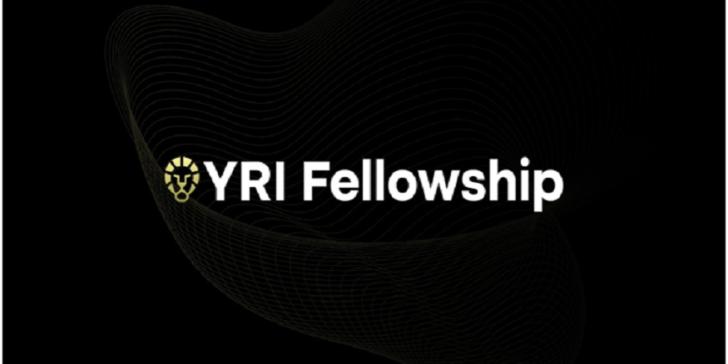
When most high school students are thinking about homework, sports practice, or weekend plans, Siri Vemireddy is diving into the molecular roots of cancer and neurodegeneration. As a YRI Fellow, Siri has been exploring one of biology’s most complex frontiers: how protein mislocalization and apoptosis resistance drive both cancer progression and neurodegenerative diseases such as Parkinson’s and Alzheimer’s.
Her project, “Cross-Talk Between Protein Mislocalization and Apoptosis Resistance: Implications for Cancer Progression and Neurodegenerative Disease Pathogenesis,” bridges two of the most devastating classes of illness by identifying shared protein pathways that might serve as future drug targets. The work combines comprehensive literature analysis with computational protein-protein interaction mapping, connecting the dots in ways that could guide tomorrow’s treatments.
Curiosity Meets Compassion
For Siri, this journey started with pure curiosity. “I have always been fascinated by how the brain works, how billions of neurons shape who we are,” she explained. “As I learned more, I realized diseases like Parkinson’s and cancer don’t just affect cells—they steal time from people’s lives. That pushed me to pursue neuroscience research to find ways to help and provide hope to millions.”
That combination of deep empathy and scientific rigor is exactly what the YRI Fellowship is designed to cultivate. Unlike traditional high school science projects—where experiments often stay confined to classrooms or local fairs—YRI pushes students to ask world-class questions, build publication-grade analyses, and think about how their findings could change lives.
Mapping the Shared Pathways of Disease
Inside her analysis, Siri tracked how failures in protein localization—when proteins are in the wrong place at the wrong time—disrupt apoptosis, the natural process of cell death. In healthy systems, apoptosis prevents malfunctioning or damaged cells from surviving. But when apoptosis fails, two devastating outcomes can occur:
- Cancer: cells avoid death, multiply uncontrollably, and form tumors.
- Neurodegeneration: neurons collapse under protein stress, leading to progressive diseases such as Alzheimer’s and Parkinson’s.
By mapping the shared molecular signatures of these processes, Siri highlighted potential therapeutic targets that could unify treatment approaches across diseases once thought to be completely unrelated. For example, if the same protein mislocalization pathway is implicated in both tumor formation and neuronal collapse, drugs designed to stabilize that pathway could have dual applications.
For a high school researcher, this is breathtakingly ambitious. For a YRI Fellow, it’s the standard.
Beyond the Classroom
This kind of research isn’t just academic—it’s the seed of translational impact. With YRI’s network of PhD mentors and structured pathways to publication, projects like Siri’s are positioned to move from the classroom into journals, conferences, and the broader scientific conversation. It’s why YRI has become the go-to fellowship for parents who want their children to do more than just study science—they want them to build science.
The Fellowship provides students with access to elite mentorship, structured accountability systems, and a global community of peers equally committed to ambitious inquiry. Weekly milestones, technical feedback, and publication training ensure that projects don’t just remain ideas—they become tangible contributions to the scientific world.
The Next Generation of Breakthroughs
Siri’s passion makes it clear: the next generation of breakthroughs won’t only come from billion-dollar pharmaceutical companies or Ivy League laboratories. They are already being drafted by YRI Fellows in high school classrooms today.
Her project also points toward the future of integrative medicine—a future where research doesn’t just target one disease in isolation, but recognizes the common molecular threads across illnesses. If cancer and Alzheimer’s share pathways of protein mislocalization and apoptosis failure, then perhaps the treatments of the future will be cross-disciplinary, attacking multiple diseases with unified strategies.
Inspiration in Action
What makes Siri’s work so inspiring is not just its scientific rigor but its human focus. For her, research is not about accolades but about impact. She is part of a growing movement of young scientists who see themselves as both researchers and changemakers, determined to confront diseases that rob people of health, memory, and time.
By taking on some of humanity’s hardest problems, Siri shows what’s possible when curiosity, empathy, and mentorship converge. Her journey demonstrates that high school students, when given the right platform, can not only keep up with professional researchers—they can push science in bold new directions.
A Call to Action
If you want your student to be part of this movement—publishing research, winning major science fairs, and pushing boundaries in neuroscience, oncology, and AI—the path is clear. Apply now to the YRI Fellowship at yriscience.com.
With innovators like Siri Vemireddy, the Fellowship continues to prove that the future of science is already here—and it’s being written by the next generation.
